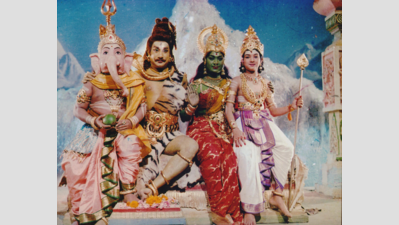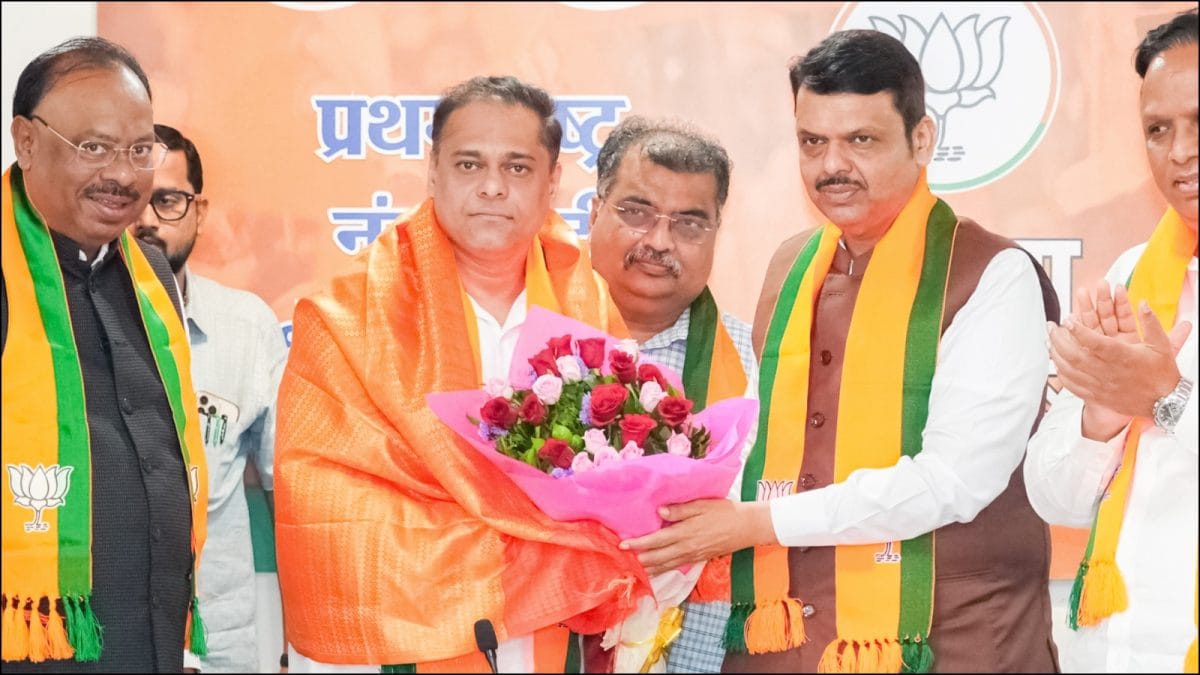ARTICLE AD BOX

The popularly worshipped Murugan was brought into the film ‘Thiruvilaiyadal’ to appeal to audiences. Pic S Lenin
Vamanan
The gambit in recent times of ideologically opposed political forces in Tamil Nadu holding Murugan conferences can be read as an attempt to co-opt the state’s most beloved Hindu deity for partisan ends.
While this strategy may be new in the political field, it was a cinematic artifice used successfully by the iconic film ‘Thiruvilaiyadal’, 60 years ago
.
The mythological movie on the ‘sports’ or playful activities of Shiva, a less popular subject in Tamil cinema, was buttressed by bringing the popularly worshipped Murugan into the picture: the entire narration is by Shiva’s consort Parvati to her son Murugan, explaining to him how Shiva sometimes tested his devotees but ultimately showered his grace upon them. The climate for ‘Thiruvilaiyadal’ could not have been more inimical at the time of its release in 1965, as the rhetoric of the Dravidian movement against Hindu gods was in full throttle, and the anti-Hindi agitation was at its height. Yet, the film not only went on to win wholehearted popular support but also to write itself indelibly into the public mind in more ways than one. It turned out to be a magical milestone of a film, which, through its multi-layered genius, achieved permanence in the celluloid medium known more for evanescence and oblivion than for continued relevance.
While the subject of ‘Thiruvilaiyadal’ is a religious one, the script had a few points in line with the growing political discourse of the day. Nakkeerar, the great poet and savant of the Madurai Tamil Sangam, is portrayed as a rationalist who dared to oppose Shiva, the very deity he worships, when it came to an argument based on reason
!
This reiteration of the necessity of independent thought resonated with the context of questioning authority in India at the time of its release and remains relevant in contemporary political discourse. The portrayal of Nakkeerar in the film as a rationalist is questioned by some traditional Tamil scholars.
The greatness of the Tamil language, a point surcharged with individual, cultural and political emotions in Tamil Nadu, is prominently brought into play in the film by making the Tamil poetess Avvaiyar an important character in the film: only a Tamil poet can walk in and out of the heavens at will and give counsel to the gods themselves.
The film also subtly conveys messages about the value of humility over knowledge and the dangers of overweening ambition.
While the task of ensuring a colour-corrected digitised copy of the Eastman colour film for public viewing was achieved in 2012 after ironing out copyright issues before the golden jubilee of the movie in 2015, diamond jubilee celebrations have just about taken off with an event in Madurai, the city in which Shiva is said to have taken various forms in response to the prayers of his devotees. ‘
Thiruvilaiyadal’, meanwhile, has notched millions of views on popular video-sharing platforms.
If credit for the film rests with one person, it is A P Nagarajan.
In his 12th year in cinema, he wrote, produced and directed ‘Thiruvilaiyadal’, the pinnacle of a 25-year career that spanned acting, writing and direction. Beyond his inventive dialogues, deft screenplay, and the performances he drew from his team, lies a deeper indebtedness rarely acknowledged.APN was just 10 when he joined the professional troupe of the famed TKS Brothers in the late 1930s. As T K Shanmugam recalls, the boy with striking looks, an unbroken voice, and a natural flair was cast in leading female roles, which he carried off with ease.
Around this time, the brothers, with Soolamangalam Vaidyanatha Bhagavathar, created an engrossing play on Shiva’s sports in Madurai, titled ‘Shiva Leela’. Premiering on July 27, 1941, in Madurai, the play ran to more than a hundred shows at a single venue, with APN playing Parvathi as well as Kayarkanni, the fisherwoman Shiva woos and weds.
The dramatisation of Shiva’s sports became the template on which APN built ‘Thiruvilaiyadal’ nearly 25 years later, modifying and amplifying it in his own style.
An earlier attempt to film it as ‘Shiva Leela’ by M A Venu, APN’s longtime producer, had collapsed when MAV went bankrupt. By then, APN had risen as a successful producer-director and took over the project, renaming it ‘Thiruvilaiyadal’.Apart from being a vivid recreation of a religious and literary classic (the 16th-century Thiruvilaiyadal Puranam), ‘Thiruvilaiyadal’ was also an encapsulation of the power and glory of the Tamil stage in the first half of the 20th century.
Even as it includes a song by Sankaradas Swamigal, considered the father of the professional Tamil theatre, ‘Thiruvilaiyadal’ has the impress of actors such as Sivaji, K B Sundarambal, T R Mahalingam and APN himself and members of its creative unit like music director K V Mahadevan, among others, whose roots were in the Tamil stage.
OF MYTH AND HIT
‘Thiruvilaiyadal’ was received enthusiastically by filmgoers, had a maximum run of 26 weeks, won the National Award for second best Tamil film, and won the Filmfare award as wellSivaji Ganesan, who excelled in the film, was reportedly hesitant to play the role of Shiva. “Will fans accept me in dreadlocks?” he asked A P Nagarajan. But APN was insistent, because as an actor, he had a vision based on directly seen the effect of ‘Shiva Leela’ on stage audiencesIn supporting roles, the film had Nagesh as the penniless poet yearning for a thousand gold coins, T S Baliah as the arrogant singer holding a kingdom to ransom with his pride, Savitri as Shiva’s consort —the role APN once played on stage — and APN himself as Nakkeerar, the Sangam poet unafraid to challenge his own deity on a point of contentionALSO READ:



.png)
.png)
.png)
















 11 hours ago
4
11 hours ago
4









 English (US) ·
English (US) ·